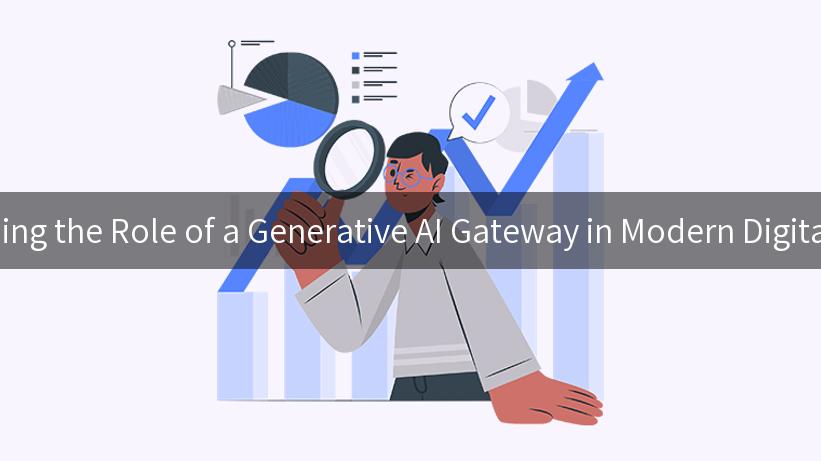
In the rapidly evolving technological landscape, businesses are increasingly adopting artificial intelligence (AI) to enhance operational efficiency, improve customer experiences, and drive innovation. Among the various AI implementations, generative AI stands out due to its ability to create content, analyze complex data, and even drive decision-making processes. However, to leverage these capabilities effectively and securely, organizations must adopt a robust API gateway framework. This article delves deep into the significance of a generative AI gateway, its role in modern digital strategies, and how businesses can ensure secure AI usage with the right tools and protocols.
The Concept of an API Gateway
An API gateway acts as a single entry point for various API requests from clients to backend services. It simplifies the interaction between the user and multiple services in a microservices architecture by performing several critical functions:
- Request Routing: Directs incoming requests to the appropriate service.
- Authentication and Authorization: Ensures that only legitimate users can access the services.
- Load Balancing: Distributes incoming requests evenly across multiple servers to optimize response times.
- Monitoring and Logging: Tracks API usage and performance metrics.
Two significant protocols for ensuring secure accesses, such as Basic Auth, AKSK (Access Key Secret Key), and JWT (JSON Web Tokens), are prevalent in API gateway configurations. By adopting these protocols, companies can uphold enterprise security while using AI services.
Role of Generative AI in Digital Strategies
Generative AI technology allows organizations to enhance their creativity and analytical capabilities. Its potential applications include generating text, images, music, and even code. The integration of generative AI into business processes can significantly transform operations, including:
- Content Creation: Businesses can use generative AI models to create tailored marketing content, social media posts, and more, effectively reducing the workload on human copywriters.
- Data Analysis: With generative AI, companies can automatically generate reports and insights from vast datasets without human intervention.
- Customer Interaction: AI-driven chatbots powered by generative AI can provide a high level of customer support by understanding and generating natural language responses.
Implementing a Generative AI Gateway
To harness the capabilities of generative AI, organizations must establish a well-defined generative AI gateway significantly. This gateway serves as a bridge between the AI services and the applications using them, facilitating secure, efficient API calls. Let’s break down the key components essential for this implementation.
1. API Management with APIGEE
APIGEE, a leading API management platform by Google, provides organizations the tools required to create a robust API ecosystem. It enables businesses to expose their generative AI capabilities while maintaining control over who can access them. Some key features of APIGEE include:
- Traffic Management: Streamlining the incoming API traffic to ensure services remain unaffected by sudden spikes.
- Policy Enforcement: Defining rules for data access control and user authentication through Basic Auth, AKSK, or JWT.
- Analytics and Monitoring: Providing insights into API usage trends, which can inform future strategies regarding AI implementations.
2. Security Features
Modern enterprises require stringent security protocols when implementing AI services. The following security methods can be integrated into the generative AI gateway to safeguard APIs:
| Security Protocol |
Description |
| Basic Auth |
A simple authentication scheme where users provide a username and password encoded in the request. |
| AKSK |
Access Key and Secret Key, a secure method that allows programmatic access through unique keys. |
| JWT |
JSON Web Tokens provide a stateless authentication mechanism that allows safe data transfer between parties. |
Each of these methods ensures that only authenticated users can access the generative AI capabilities provided by the organization.
3. Development and Deployment
Deploying a generative AI gateway requires collaboration between development and operations teams. Utilizing tools like Docker, Kubernetes, and APIPark can streamline this process. For example, here’s a basic script that can be used to deploy an API service using APIPark:
curl -sSO https://download.apipark.com/install/quick-start.sh; bash quick-start.sh
Using the above commands, organizations can set up APIPark quickly and start utilizing the benefits it offers in API management and generative AI service deployment.
APIPark is a high-performance AI gateway that allows you to securely access the most comprehensive LLM APIs globally on the APIPark platform, including OpenAI, Anthropic, Mistral, Llama2, Google Gemini, and more.Try APIPark now! 👇👇👇
4. Monitoring and Optimization
After deployment, a crucial aspect of managing a generative AI gateway involves continuous monitoring and optimization of API calls. Organizations should analyze API performance metrics to ensure that the response times are optimal and that security measures remain effective in protecting sensitive data.
Tools like APIGEE offer built-in analytics, allowing businesses to track API performance, gather insights, and make data-driven decisions that enhance service delivery and customer satisfaction.
Conclusion
The role of a generative AI gateway in modern digital strategies is paramount. By combining the capabilities of API management platforms like APIGEE with robust security measures such as Basic Auth, AKSK, and JWT, organizations can safely and effectively leverage generative AI to enhance their operations, innovate their services, and gain a competitive edge in the marketplace.
Incorporating a generative AI gateway not only improves the efficiency of API interactions but also ensures that businesses maintain the highest level of security and data integrity while utilizing powerful AI technologies. Companies are thereby equipped to forge a path toward a technologically advanced future, fully realizing the transformative potential of generative AI within their digital strategies.